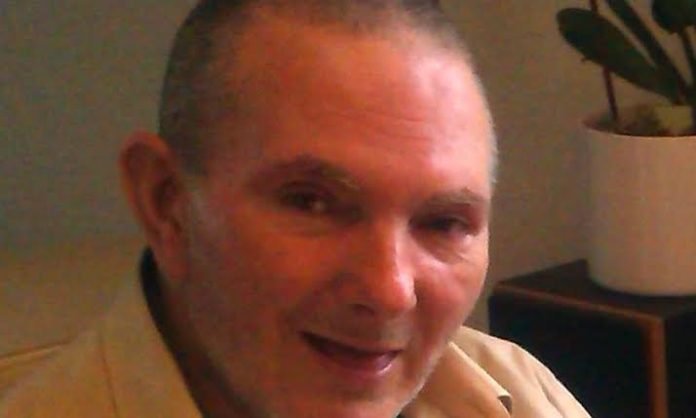A ‘teenage tearaway’ has walked free from court after battering a pensioner in his home and leaving him with a bleed on the brain weeks before his death.
The 15-year-old allegedly attacked David Quigley, 69, with his own walking stick after he was confronted by the pensioner who found him on his garden shed late at night in Wirral, Merseyside.

Mr Quigley died three weeks after the assault last October and the youth, who cannot be named for legal reasons, was charged with murder but the charge was later dropped.
He had been inside his home when he ‘heard a noise in his back garden’ and went to investigate, Liverpool Youth Court heard.
There, Mr Quigley – who suffered from a ‘number of health difficulties’ and used a walking stick to ‘assist with his mobility’ – found the defendant on the roof of his shed.

Nick Cockrell, prosecuting, described how the boy had been ‘drinking and making a nuisance of himself’ earlier in the evening and had been ‘hopping from one garden to the next’ in the area.
He jumped down from the shed after being ‘challenged’ by the homeowner, who asked him: ‘Who the hell are you?’
Mr Quigley received no response, at which he ‘took a swing at him’ then ‘attempted to retreat to the safety of his house’ – leaving behind his cane.
The offender followed him however, and there followed a ‘physical altercation between the two’ by the back door – after which the lout left him on the floor unconscious.
His next door neighbour had been alert by ‘banging and shouting’ and saw the boy holding part of the broken walking stick.
He stated that he could smell alcohol on the teen, who told him: ‘Do you know what he’s been doing? He’s been abusing me.’ But Mr Cockrell said of this: ‘That was clearly a barefaced lie.’
The now 16-year-old put his foot through the roof of the neigbhour’s shed as he fled.
Police then attended the scene, entering the property via the ‘slightly ajar’ back door and helping Mr Quigley into a chair before he was taken to Arrowe Park Hospital.
He would later be transferred to the Walton Centre, having suffered a ‘very significant bleed on the brain’. His condition ‘appeared to be improving’ and he was discharged on November 2.
But, on November 15, Mr Quigley was visited at his house by his brother Thomas who found him ‘face down with his head against the sofa’.
Mr Cockrell added: ‘He had tragically passed away.’
The boy was identified by two handprints left on the back door of the address and was also picked out by the neighbour in an identity parade.
He was arrested in the early hours of October 26 on suspicion of aggravated burglary and gave no comment under interview, also remaining silent once quizzed again following Mr Quigley’s death.
But a pathologist who carried out a post-mortem investigation found ‘there we no forensic evidence which could confirm the number of blows’, only that he had ‘suffered severe head trauma, likely to be as a result of multiple blows’.
The doctor ‘could not rule out’ that this had been as a result of a ‘single forceful blow, causing him to strike his head against a firm surface’.
Mr Quigley had told officers who came to his aid that he had been ‘struck a number of times to the head’.
However, the expert ‘could not say whether Mr Quigley had been struck with a weapon’ and Mr Cockrell said: ‘After a long, protracted process, the prosecution reached the conclusion that it would not be able to satisfy a jury that (boy’s) actions caused Mr Quigley’s death.’
The teenager served 123 days on remand in custody in Barton Moss Secure Unit in Salford while awaiting trial charged with murder, followed by 140 days on an electronically-monitored curfew after being bailed.
Wearing a navy blue suit, he was allowed to sit in the body of the court alongside his mother today rather than being seated in the dock.
A statement was read out to the court on behalf of the deceased’s younger sibling, who was banned from attending the hearing after it was ruled that this would ‘put the defendant under undue stress’ – with his ‘welfare being paramount’ to the magistrates panel’s decision.
Thomas Quigley’s statement said: ‘Your attack on my brother changed many lives forever.
‘Having denied the assault for nearly eight months, you finally owned up to it. I would like to think that is because you have found your conscious, but I would be naïve to believe that.’
Catherine Davies, defending, told the court that her client – who has no previous convictions – suffers from autism and ADHD and that the murder count had been dropped ‘due to conflicting medical evidence’.
She added: ‘This incident was never planned or premeditated.
‘It was a moment in a child’s life when he didn’t want to go home to his mother’s house that night. He was being a typical teenage tearaway.
‘He is doing really well. Mr Quigley’s death is a tragic loss to his family.
‘He will reflect on this time in his life for a long time to come. I am positive that if he could turn back the clock, he certainly would.
‘If he could erase October 25 from his life, he would do so in a heartbeat. It is a day that will haunt him for the rest of time.’
The boy admitted inflicting grievous bodily harm without intent during a previous hearing last month.
He was given a 12-month youth referral order, with £120 in court costs and a £26 victim surcharge to be paid by his mum at a rate of £40 per month.












